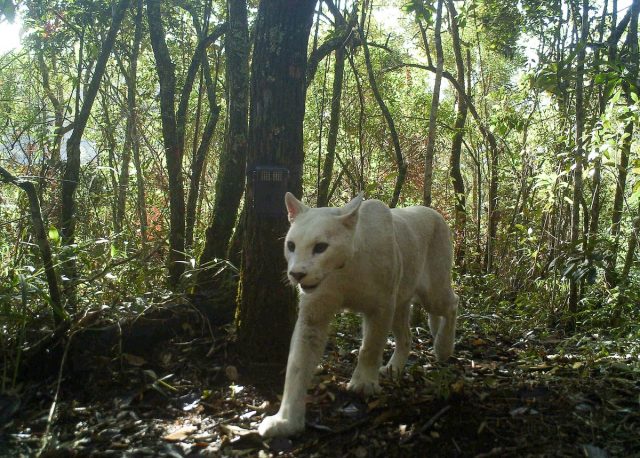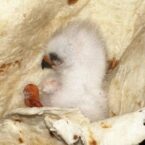This unusual white cougar which was spotted deep in Brazil’s Atlantic Forest might be one of the most unique examples of this species. The young male was captured on camera in Serra dos Órgãos National Park from Brazil and the first photos were taken back in 2013.
The cougar was confirmed by scientists to have leucism, a mutation that gives its unique white look. Such examples of this species are so rare, that many scientists have stated that they won’t probably see another white cougar in their lifetime. There are of course many other wild cats with genetic mutations, but these have been documented extremely rarely in cougars.
“That shows you how extremely unusual it is,” says Luke Hunter, executive director of the Wildlife Conservation Society’s Big Cats Program and author of the book Wild Cats of the World. “It’s a striking set of photos.”
Genetic color aberrations, such as albinism and leucism, are relatively common among wild cats, but for unknown reasons, they’re almost unheard of in cougars, a successful predator whose habitat stretches from Canada to Chile, the biggest north-south range of any wild cat.
For instance, there has never been a record of a black cougar and only two albino cougars are known to exist in the world up to this day. Cougars are usually gray or have earthy colors, which help them hide efficiently in the mountains and hunt their prey. Since this cougar with leucism was caught on camera in Brazil, scientists have been trying to track it to study its genes, but with no success.
The cat has never again appeared, but the team working at the national park still hopes that it would come back one day or show up on one of the park’s cameras surveying the area.
Source: National Geographic; photograph by ICMBIO



















